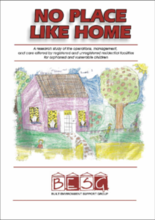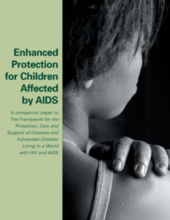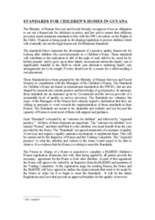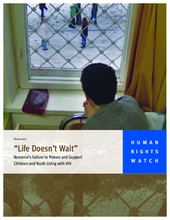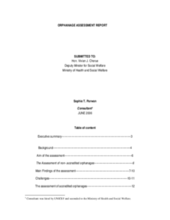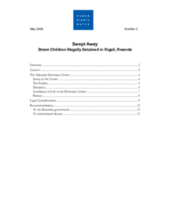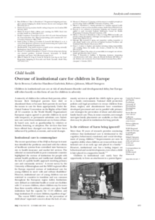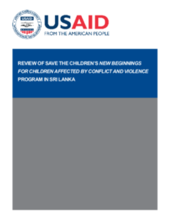Displaying 701 - 710 of 772
This video by Save the Children highlights key research findings from an assessment on the quality of care in children's homes in Indonesia (2007), jointly published with the Indonesian Ministry of Social Affairs and UNICEF.
A study of the management, operations, and care offered by institutions for AIDS orphans in South Africa. It compares the findings of registered and unregistered institutions.
Outlines how to strengthen social protection, legal protection, and alternative care for children at country level. Contains specific actions that governments and NGO's can take to decrease the vulnerability of children affected by AIDS and respond to instances of abuse, exploitation and neglect.
Overview of institutional and alternative care for Children in Need of Special Protection in Vietnam
A set of standards for measurable quality in service provision for children living in homes. Outlines the rights of a child, planning and legalizing children’s care, children’s home administration, management and staffing, and safeguarding child welfare while in the home, which includes nutrition, health, education and religion.
This report by Human Rights Watch is based on field research conducted in Bacău, Bucharest, Constanţa, Giurgiu, and Ilfov counties in February 2006, and follow-up telephone and email contacts through June 2006.
Documents assessment of child welfare and protection of children in orphanages in Liberia.
This report details the conditions of children held at an unofficial detention center in Kigali, Rwanda, held in overcrowded buildings and suffering from a lack of adequate food, water, and medical care, and subjected to abuse.
This article discusses the use of institutional care for children in Europe and shows that it remains common place despite the evidence of harm for children, including attachment disorder and developmental delay.
An evaluation of a programme in Sri Lanka that aimed to resettle and reintegrate children affected by armed conflict, prevent and respond to child abuse, and develop community based alternatives to institutional care.

